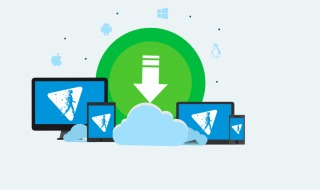The Internet is a place where we carry out a multitude of digital activities, such as browsing web pages, streaming movies, communicating all around the globe, and many more. In this scenario, securing data becomes important.
To secure data and keep it safe from unauthorized access, there is a silent guardian known as the HTTP proxy. The HTTP proxy acts as an intermediary between you and the Internet that collects your requests and retrieves data on your behalf. Not only do they help in the retrieval process, but they also secure your identity, monitor data flow, and facilitate anonymous internet browsing.
Here, you will get deeper insights on HTTP Proxy. So, let’s get started.
Contents
What are HTTP proxy servers?

An HTTP proxy server is a blend of understanding and capabilities that manages HTTP traffic, particularly for web-based communication. Its security keeps our data secure while passing through the communication channel. Let’s understand how.
When you browse the web for a desired web page, your request is not directly transmitted to the server. Instead, it gets transmitted to the proxy server, which establishes the connection with the server on your behalf. When your request gets processed, the proxy server hides several pieces of information, such as your original IP address, request origin, Operating System (OS) data, and more. It helps prevent easy tracking by third parties.
Remember that proxy servers operate at the application level. For example, a browser is essential to connect to a proxy server address to protect yourself when browsing. To enjoy an efficient and safer online experience, upgrading to an authorized HTTP proxy provider is necessary.
Which are the types of HTTP proxy servers?
There are many proxy servers. However, let’s move further and understand the three main types of HTTP proxy servers.
Open proxies:
Open proxy servers are publicly available and do not require any authentication. This means that if you utilize one for improved anonymity, your data may not be secure from whoever owns that server.
Forward proxy servers:
Companies and institutions mainly use these kinds of servers to direct internal connections to the external world. Forward proxy servers are crucial to accessing websites or services, contributing to network security.
Reverse proxy servers:
Simply put, these are the types that assist in managing incoming requests to your website. They provide benefits such as privacy and caching.
Is using a Free Proxy Server safe?
No, it’s not safe. Free proxies are open to everyone, and their use can raise many security concerns. No doubt they provide online anonymity, but on the other hand, it might damage your privacy on the web.
Such proxies do not encrypt the user’s data. Proxy providers can spy on your device’s data and might sell the data for monetary gain.
For only casual web browsing, it is recommended where there is no sensitive information at stake. Use paid proxies for  strong security, particularly when logging into an account, shopping, or working online.
strong security, particularly when logging into an account, shopping, or working online.
Why use a paid proxy?
A high-quality proxy server service is advisable when needed. Because they offer excellent services to businesses or individuals if needed to:
- Access geo-restricted content regularly
- Monitor web traffic to prevent misuse of company resources
- Safeguard network against malicious software
- Implement web policies to ensure team members cannot access potentially harmful or inappropriate websites.
Why use HTTP Proxy?

Enhanced privacy and security:
The main benefit of using an HTTP proxy is that it makes your network ID more private and anonymous. It hides your IP addresses and location so that untrustworthy websites or hackers can’t trace your online activities. Also, it removes and prevents malicious content, adding an extra layer of security.
Access to blocked content:
Simply, utilizing an HTTP proxy server helps eliminate content restrictions effectively. The proxy server enables you to get access to content, websites, and online services that might be blocked at your current location.
Performance optimization and caching:
HTTP proxy servers can cache web content that is frequently accessed. When a web page is requested, the proxy server can provide a cached version if it has been visited before. This caching mechanism helps reduce bandwidth and boost reload speed, which further improves your browsing experience.
Conclusion
Proxy servers are a helpful tool that can assist in maintaining privacy and bypassing regional limitations. However, like with many online services, there may be better solutions for safeguarding your data than free proxy servers.
If you are in the market for an HTTP Proxy, look at our HTTP Proxy services, which will enhance your online security at a very reasonable rate.



